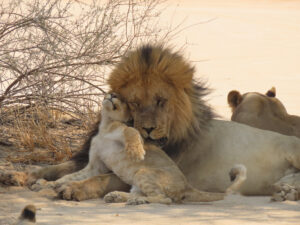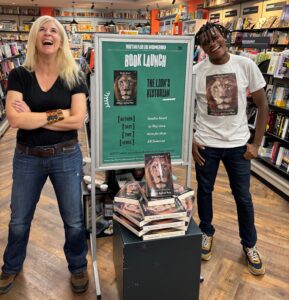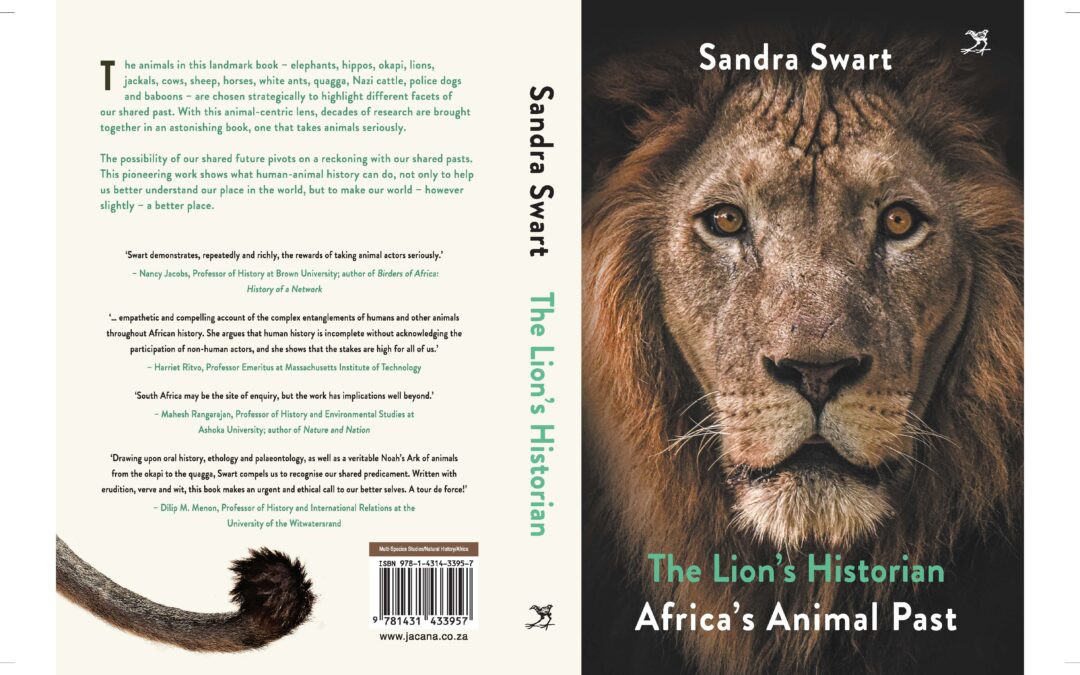There is an African proverb, “Until the lion has a historian of his own, the tale of the hunt will always glorify the hunter.” Prof Swart took up the challenge of writing a new kind of history, to show how to become the lion’s historian. This significant and unique approach to history, animal species and humans got her longlisted for the Sunday Times Literary Awards, a prestigious honour among the literary fraternity in South Africa.

This book is a brand new way of understanding a past in which animals are not only key to human history, but in their own right too. Including animals helps us tell old histories in new ways. Including animals not only ‘rounds out’ the picture, but actually challenges traditional interpretations. This book shows that animals have cultures of their own that change over time, and may be co-created with Homo sapiens. The book embraces radical interdisciplinarity. With her background in both history and the environmental sciences, Prof Swart combines the natural sciences (biology, ethology, conservation biology, palaeontology) and the social sciences, oral history, indigenous knowledge as well as archival history. So, current scientific thinking about animal sentience, agency, cognition and emotion is blended into an understanding of their role in our shared history. This book tackles three fresh issues in animal history: deep time (geological or cosmic time), traditional ecological knowledge, and demonstrating how animal history can advance a ‘usable past’ that helps both animals and humans in the present.
“This book consciously ponders how we write about animals now, in this time of global crisis, with a world on fire in many senses of the word. If we are not alone and given our current global crises of mass extinctions, are we prepared to move beyond the convention that ‘history’ is only the story of our own species? I want to show what human-animal history can do, not only to understand our place in the world better but to make our world – however slightly – a better place,” said Prof Swart. It is critical to note that the entanglement between humans and other animals has shaped our past, but also to note that this suggests something more. In this current cataclysmic biodiversity crisis, we as humans need to find new ways to live and relate to other beings in the universe.

Prof Swart’s book is non-fiction. She reckons some parts will be hard to read, as they were hard to write. It is a book with fangs and claws – it hurts as it offers hope. It is indeed a book that appeals to anyone trying to understand South Africa’s fractious and fractured past as well as history enthusiasts, nature lovers, and those staunch believers in biodiversity and animal-human co-existence. This Sunday Times Literary Awards longlisting is very important to her as a historian. “This is a wonderful honour and I’m very proud! The award has been going for over three decades and is one of South Africa’s most prestigious literary awards. The award will be bestowed on a book that presents ‘the illumination of truthfulness, especially those forms of it that are new, delicate, unfashionable and fly in the face of power’, and that demonstrates ‘compassion, elegance of writing, and intellectual and moral integrity’,” said Prof Swart. She added, “Those are goals anyone would be proud to even aim for, let alone reach. In historicising animals, I frequently fly in the face of historical orthodoxy. This research is new and embraces several unconventional and unpopular topics – so much so that I have a large lever arch file full of correspondence (‘Hate Mail Volume II’).”
Enjoy reading! Readers can look forward to elephants, okapis, lions, jackals, cows, sheep, horses, white ants, quagga, Nazi cattle, police dogs, baboons and cocaine hippos belonging to Pablo Escobar! The book is published by Jacana Media and is already available at Exclusive Books and other reputable bookstores nationally at a retail price of R330.

